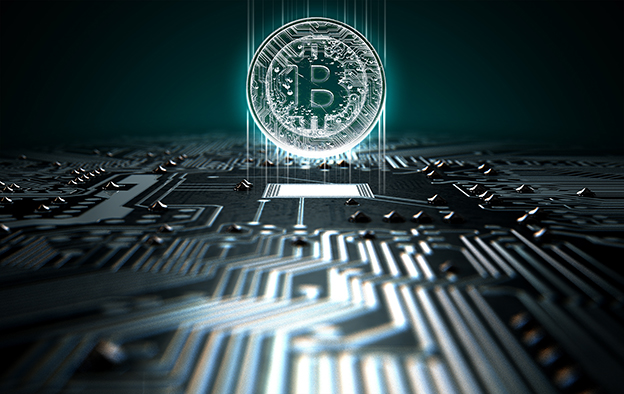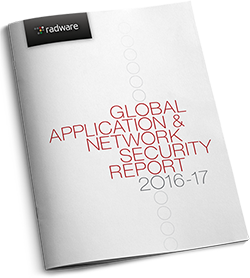What does the word “decentralization” mean to you? In general terms it stands for distribution of functions and responsibilities to less involved parties. For some people decentralization carries negative connotations and implies inefficiency and inaccurate performance of mechanisms. In most cases this standpoint may carry much conviction, but not in terms of bitcoin exchange and its underlying principles.
Any bitcoin related activities are based on a blockchain technology, which follows the idea of a decentralized networking system with a priority given to utmost security and transparency of transactions. Bitcoin protocol is protected by advanced mathematical and cryptographic algorithms, so that it can hardly be manipulated by any third party without dedicated encryption keys and digital signatures. Not any transaction, taking place inside the network, will go unnoticed and unvalidated, because each circulating bitcoin is under rigorous surveillance of bitcoin miners and blockchain nodes. This sound approach to bitcoin processing definitely inspires confidence in the currency itself and bitcoin-related services as a whole.
But don’t jump the gun! In spite of the fact that Bitcoin is gaining pace and has established itself as the most popular digital currency, Bitcoin-related market is still at its immaturity.

Two sides of the Bitcoin
Bitcoin greatly resembles fiat currency in terms of buying and selling. There are virtual exchanges and service platforms, where bitcoins are traded and can be redeemed for traditional currency. But unlike traditional financial institutions, bitcoin exchanges are not controlled and maintained by any central authority in charge of monetary assets. Is it for good or for bad? Both scenarios are possible here.
Keeping bitcoins within virtual exchanges offers a great deal of trading flexibility and freedom. When referring to bitcoin exchanges the user can be sure of a simple exchange process and full technological support at any stage of trading. Along with that, virtual exchanges keep a close watch on bitcoin price fluctuations and provide their users with the most up-to-date information on bitcoin market behaviour. This is a pretty smart technique for the user to have his finger on the pulse and get into big money by securing a good bargain at a well-chosen moment.
Regardless of the fact that Bitcoin is a relatively new phenomenon and hasn’t yet demonstrated its tried-and-true security excellence, bitcoin protocol is still safe enough and has little chances to be compromised.
However, the same cannot be said for bitcoin exchanges and related services, which are sometimes far from being as perfectly safe as they should be and become the major security weakness in Bitcoin environment.
[You might also like: How To Buy Bitcoin]
World’s largest but not safest
Due to the fact that bitcoin exchanges host solid investments, they are hugely exposed to hacker attacks and external intrusion. Tech-savvy bitcoin hunters exploit leading-edge technology to find flaws and vulnerabilities in “ultra-secure” exchanges and sometimes hit the jackpot.
Mt. Gox: The Story With No Happy Ending
Tokyo-based bitcoin exchange began its operations in 2010 at the very dawn of Bitcoin era. Mt. Gox was growing its bitcoin trading business at a rapid pace and soon became the world’s largest bitcoin exchange.
2014 became crucial for Mt. Gox and its users. Mt. Gox announced bitcoin trading suspension and froze all accounts due to security system vulnerabilities. As it came to be known afterwards, Mt. Gox became subject to continuous hacker attacks and lost over 850,000 bitcoins to the value of about 450 million dollars.
In a short while Mt. Gox declared bankruptcy and shut down their operations. According to the official line, bitcoins were stolen because of transaction malleability.
Bitfinex: In Pursuit of Good Credit
Bitfinex is one of the largest exchanges, having a pretty nice amount of bitcoins in circulation. It makes the top four virtual exchanges in terms of digital currency trading and enjoys great popularity among investors.
In August, 2016 Bitfinex came up with the news that hit its customers like a ton of bricks. Bitfinex reported a loss of 120,000 bitcoins, the value of which is about 70 million dollars. According to Bitfinex representatives, the thieves targeted only bitcoins and hacked into a limited number of wallets, whereas many other accounts were not compromised. To reimburse affected customers for their damage Bitfinex splitted losses among all users, reducing their deposits by 36%.
Bitfinex security breach is still under investigation and the details are kept confidential.
So far, lost amounts of bitcoins account for more than 500 million dollars, if taking into account only these two sensational bitcoin exchange robberies. And what if we dug a little deeper and sent other bitcoin theft incidents to the surface? The total amount of stolen funds would be shocking.
[You might also like: The Current Surge of Bitcoin Prices]
No centralization - no compensation
In the context of Bitfinex hack, users appeared to be relatively unaffected, largely owing to refunding decisions made by Bitfinex executives. It should be stressed that such reimbursement practices are applied by bitcoin exchanges on very rare occasions.
By nature, Bitcoin market is decentralized and thus not regulated by any superior authority. You will be fortunate to stumble upon an exchange, paying much attention to customer fund care.
Most bitcoin exchanges emerge from nowhere and vanish overnight, leaving their customers dead broke. It is almost impossible to identify, which exchange is reliable and trustworthy, because it is controlled only by its founders. Therefore, you should be a real venturer to keep all your funds within a virtual exchange or a billionaire, who can afford sacrificing a million or two.
Better safe than sorry
Greed for gain has always been a driving force behind most criminal activities. Being major digital currency repositories, bitcoin exchanges will remain a hot target for cyber-attacks as long as they exist.
Year by year hackers are becoming more creative and persistent, which results in massive cyber-attacks forwarded to bitcoin-related services. Cybercriminals stay strong in the pursuit of their goals and invent new methods to target digital wallets, infect systems and block traffic. Bitcoin exchanges are continuously suffering from heavy DDoS attacks (distributed denial of service), which cause trading activity disruption and system malfunctioning.
Bitcoin hacking attempts are inevitable and will be gaining pace, but they can still be restrained. Seeking great customer recognition and confidence, bitcoin exchanges are now taking strict security measures to keep user funds safe.
Advanced authentication. Two-factor or multifactor authentication methods add extra levels of security and make it extremely difficult for intruders to compromise your account. The user is required to enter his ID, password and a specially generated one-time code to confirm his identity.
Multisignature. This method is used to protect bitcoin transactions by multiple keys, assigned to different nodes on the network. The transaction is considered valid, if authorized and verified by more than one signature.
Cold storage. Cold wallets allow users to hold their bitcoins offline. The best way to keep your funds safe is to store them on the medium, disconnected from the Internet and thus away from hacker’s reach.
To provide customers with the level of security, which is close to perfect, some bitcoin exchanges do employ all above-mentioned methods and take even more precautions to protect their systems. In addition to that, they ensure immediate withdrawals of customer funds and follow compensation policies. Hopefully, prospects of bitcoin exchanges seem to be not so gloomy and there is always a way out!

Read the 2016–2017 Global Application & Network Security Report by Radware’s Emergency Response Team.
Download Now